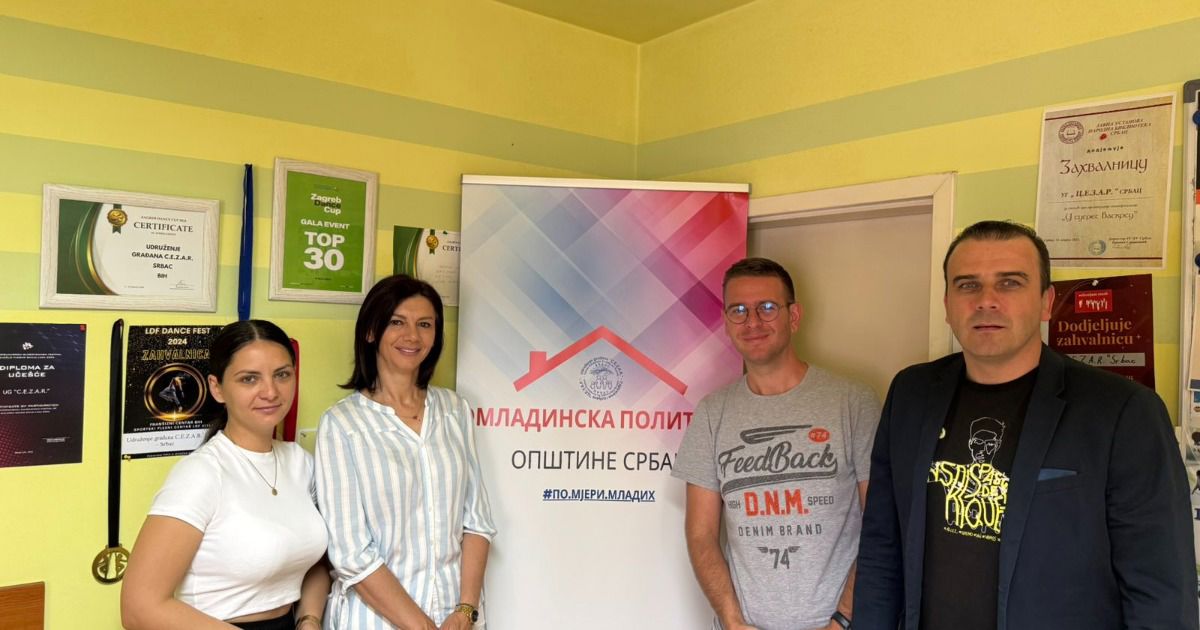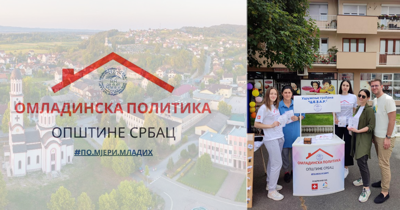
The municipality of Srbac may soon adopt a new youth policy, the first since the previous one adopted in 2016. Thanks to a campaign launched by the Cezar Association with the support of PRAGG and active involvement of the local community, a working group has been formed and is actively drafting a document that aims to lay the foundation for improving the position of young people.
The working group includes representatives from various sectors: Dragana Stojić from the Municipal Administration, school counselor Danijela Gužvić from the Public Institution Secondary School “Petar Kočić,” head of the Srbac Employment Bureau Milanika Šnjegota Srdić, educator and president of the NGO Milenijum Sanela Vidović, activist and English teacher Ljubiša Popović, and Cezar’s Executive Director Tanja Šnjegota.
“We genuinely feel the support of institutions. From the local government, schools, and employment office to the civil sector—everyone is on the same page. We are working together on a document that we hope will lead to tangible results,” says Tanja Šnjegota of Cezar.
According to estimates from the Republika Srpska Institute of Statistics, there are currently 2,527 young people aged 15 to 30 living in Srbac. Research conducted as part of the campaign showed that young people are especially interested in programs for journalists, artists, and athletes, as well as in concrete economic measures such as paid internships and temporary employment through a youth cooperative.
“Without a youth policy, we cannot systematically address key issues such as unemployment, youth emigration, or exclusion from decision-making processes. We hope this document will become a tool for real change,” adds Ljubiša Popović.
In addition to the active engagement of the Cezar Association, meetings were held with representatives of local authorities, who expressed clear and open support for adopting the youth policy. According to their statements, the document is expected to be adopted without obstruction.
Although the path to concrete measures is still in progress, there is a growing sense in Srbac that change is possible when institutions and young people work together.






